We are sad you missed the A Trauma-Informed Approach: Three Myths Busted but you’re in luck! You can watch the webinar here and learn more about how to reduce the impact of stress by nurturing this approach in your setting. If you’re just looking for the recap, we’ve got you! Here’s more of what you missed…
We started the workshop out with connection and mindfulness because a this approach is about HOW you do WHAT you do. It’s a culture, it’s a vibe. Then we got into busting the myths that have been told about this work.
A trauma-informed approach…
Myth 1: doesn’t hold people accountable.
Truth 1: does hold people accountable.
Myth 2: is for others, not me
Truth 1: is not for “those people.” It starts with you!
Myth 3: is just another item on my to-do list.
Truth 3: is not a simple checklist of activities. It’s a culture.
As a group, we acknowledged the following issues that many of you are experiencing in your workplaces:
- There can be a lack of accountability
- It can be difficult to feel like I am making a difference
- The culture is often not reflective of the organization’s values
We then explored what can be done about it.
A trauma-informed approach can create and nurture a culture where people are accountable and can make a difference. It can support a culture where values and actions match and it starts with you!
“I was truly fearful of what it would mean for us to become a trauma-informed organization. I had heard from other leaders of how much time and resources they had put into their own efforts that I wondered whether this would be sustainable for us. However, Lori and Andi broke the concepts down for us in a way that was very bite-sized. Now I have no fear about being able to sustain our trauma-informed care journey.”
~Carmen Ibarra, Chief Executive Officer, The Achievable Foundation
We closed out with questions and comments from the participants and offered solutions of how you can get started in working with us.
How can I get started?
“We have to name it to tame it” is a common phrase used in this work (coined by Dr. Dan Siegel, neuroscientist at UCLA). The first step to a trauma-informed approach is developing a language to talk about stress, its impact, and what we can do about it. In The Basics, you will learn about the key concepts that provide a foundation for a trauma-informed and resilience-building approach. To make it accessible, you can take this course in person, virtually, or on demand! Learn more about The Basics here.
I already understand ACEs science and resilience. How can I put these concepts into action?
For those who are ready to move into action, check out The Resilience Champion Series and Trauma-Informed Tips Series.
In the Resilience Champion series, your action team (who will lead your implementation) will participate in a six-workshop series that helps translate and operationalize the key concepts of a trauma-informed approach in your unique organization. Together with your colleagues, you will develop a shared foundation, specific goals, and concrete steps to create and sustain a resilient culture.
The Trauma-Informed Tips series offers practical tips for implementing a trauma-informed approach. Using trauma-informed principles adapted from the Substance Abuse and Mental Health Services Administration’s (SAMHSA) (safety, trust, togetherness, agency, collaboration, belonging), each one-hour workshop in this series focuses on one principle and offers three practical tips to support the application of that principle.
Do you offer group discounts?
Yes! For groups of 5 or larger, please email us at info@originstraining.org.





